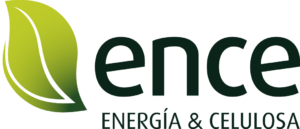Ence – Energía y Celulosa has participated in the Specialty Papers Europe 2022 conference, organized by Specialty Papers Europe and TAPPI, and aimed at presenting the latest news on the advances and trends that influence the packaging and special paper industry. An international meeting in which more than 25 companies in the sector participate.
Ence, represented by Roberto Mirande, Director of Product Development of the company, has presented in this forum “Naturcell, the best alternative to reduce the environmental footprint of your paper”, with the aim of publicizing this unbleached cellulose developed by Ence based on highly demanding and innovative criteria in terms of sustainability. Thus, some of the distinctive features of this special product are its lower carbon footprint, better use of energy in its production, a significant reduction in the resources needed, as well as the reduction in water consumption.
“The promotion of new products that are characterized by their environmental sustainability is strategic. In the face of a society that is increasingly committed to the environment, it is necessary to move towards a production and consumption model that is more respectful of the environment,” Ence’s Director of Product Development highlighted.
Naturcell cellulose is framed within the range of special products “Ence Advanced”, Ence’s line of differentiated products, capable of responding to the high expectations of a market that increasingly demands products of natural origin, recyclable, biodegradable , and that meet the highest standards of quality and sustainability. Thus, based on these high value-added products that provide competitiveness, the company is capable of supplying cellulose intended for multiple applications in which it replaces plastic or other materials with a higher environmental footprint.
In addition, Naturcell is the first to have an Environmental Product Declaration (DAP or EPD) for pulp, a program for environmental declarations, in which the environmental impacts of the product are identified and reported based on a Life Cycle Assessment (LCA).
